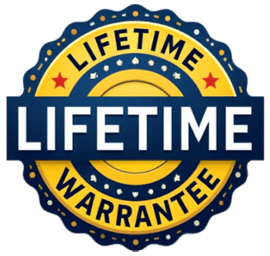
The Hidden Dangers of Hard Water in Florida Homes
Hard water is a prevalent issue for many homeowners in Florida, often overlooked until it manifests as visible damage or inefficiencies in household systems. Characterized by high concentrations of minerals such as calcium and magnesium, hard water can lead to a myriad of problems that affect both health and home infrastructure. Understanding the implications of hard water is crucial for residents looking to maintain their homes and ensure a healthy living environment.
Understanding Hard Water
Hard water is defined by its elevated mineral content, primarily calcium and magnesium. These minerals are naturally occurring and can seep into the water supply from geological formations, particularly limestone. In Florida, the U.S. Geological Survey indicates that water hardness levels can range significantly, with many areas experiencing high concentrations of calcium carbonate.
The Composition of Hard Water
- Calcium: This mineral is essential for human health but can cause significant issues when present in excess in water.
- Magnesium: Similar to calcium, magnesium is vital for bodily functions but can lead to complications in plumbing and appliances.
- Other Minerals: Hard water may also contain trace amounts of iron, manganese, and other elements that contribute to its hardness.
How Hard Water Affects Daily Life
While hard water is not immediately harmful to health, its long-term effects can be detrimental. Residents may notice that their skin feels dry after showering, laundry appears dingy, and dishes come out of the dishwasher with spots. These inconveniences can escalate into more significant issues if not addressed.
Identifying Hard Water Problems
Recognizing the signs of hard water is the first step toward mitigating its effects. Homeowners should be vigilant for several indicators that suggest hard water is present.
Common Signs of Hard Water
- Mineral Deposits: White, chalky residues on faucets, showerheads, and sinks are telltale signs of mineral buildup.
- Soap Scum: Hard water can hinder soap from lathering effectively, leading to a film on surfaces and dishes.
- Stiff Laundry: Clothes washed in hard water may feel rough and appear faded due to mineral deposits.
- Appliance Issues: Frequent breakdowns or inefficiencies in appliances like dishwashers and water heaters can signal hard water problems.
Testing for Hard Water
If you suspect hard water in your home, consider conducting a water test. Many local services offer testing kits that can determine the hardness level of your water, providing a clear picture of the mineral content.
The Impact of Hard Water on Plumbing
One of the most significant consequences of hard water is its effect on plumbing systems. Over time, mineral deposits can accumulate within pipes, leading to various complications.
Scale Buildup in Pipes
- Reduced Water Flow: As minerals accumulate, they can restrict water flow, resulting in decreased water pressure throughout the home.
- Clogs and Blockages: Severe buildup can lead to complete blockages, necessitating costly repairs or replacements.
- Corrosion: The presence of minerals can accelerate the corrosion of pipes, leading to leaks and further damage.
Long-Term Plumbing Costs
Ignoring hard water issues can lead to substantial long-term costs. Homeowners may face increased water bills due to inefficiencies, as well as the expense of repairing or replacing damaged plumbing systems.
Effects on Household Appliances
Hard water can wreak havoc on household appliances, particularly those that use water regularly.
Appliance Efficiency
- Water Heaters: Scale buildup can insulate heating elements, causing them to work harder and consume more energy.
- Dishwashers and Washing Machines: Mineral deposits can clog hoses and filters, leading to inefficient operation and potential breakdowns.
- Coffee Makers and Kettles: These appliances can also suffer from mineral buildup, affecting the taste of beverages and requiring more frequent cleaning.
Lifespan Reduction
The presence of hard water can significantly shorten the lifespan of appliances. Regular maintenance and cleaning may not be enough to counteract the effects of mineral deposits, leading to premature replacements.
Health Implications of Hard Water
While hard water is not directly harmful to health, it can contribute to various issues that affect well-being.
Skin and Hair Health
- Dry Skin: The minerals in hard water can strip natural oils from the skin, leading to dryness and irritation.
- Hair Damage: Hard water can make hair feel brittle and look dull, as it prevents proper cleansing and conditioning.
Digestive Concerns
Some studies suggest that the high mineral content in hard water may lead to digestive issues, such as constipation or bloating, particularly in sensitive individuals.
Solutions for Hard Water Problems
Fortunately, there are several effective solutions for addressing hard water issues in Florida homes.
Water Softeners
One of the most popular methods for combating hard water is the installation of a water softener. These systems work by exchanging calcium and magnesium ions for sodium ions, effectively reducing water hardness.
Benefits of Water Softeners
- Improved Appliance Efficiency: Softened water can enhance the performance of appliances, leading to lower energy bills.
- Cleaner Surfaces: Soft water reduces soap scum and mineral deposits, making cleaning easier and more effective.
- Longer Lifespan for Plumbing: By preventing scale buildup, water softeners can extend the life of plumbing systems.
Reverse Osmosis Systems
For those seeking purified drinking water in addition to softened water, reverse osmosis systems are an excellent choice. These systems filter out dissolved solids and contaminants, providing high-quality water straight from the tap.
Advantages of Reverse Osmosis
- Enhanced Water Taste: Removes impurities that can affect the flavor of drinking water.
- Reduction of Harmful Contaminants: Filters out excess minerals, chlorine, and other unwanted substances.
DIY Solutions for Hard Water
In addition to professional systems, there are several DIY methods homeowners can employ to combat hard water issues.
Vinegar and Baking Soda
Using distilled white vinegar or baking soda can help dissolve mineral deposits in appliances and fixtures. Regular cleaning with these substances can mitigate some of the visible effects of hard water.
Regular Maintenance
Flushing water heaters and cleaning aerators can help reduce the buildup of minerals. Homeowners should follow manufacturer guidelines for maintenance to ensure optimal performance.
The Cost of Inaction
Failing to address hard water problems can lead to significant financial repercussions.
Increased Utility Bills
As appliances work harder to compensate for the effects of hard water, energy consumption rises, leading to higher utility bills.
Repair and Replacement Costs
The longer hard water issues are ignored, the more extensive the damage can become, resulting in costly repairs or replacements of plumbing and appliances.
Conclusion
Hard water is a common yet often underestimated issue for Florida homeowners. By understanding its effects and taking proactive measures, residents can protect their homes and improve their quality of life. Whether through professional water treatment systems or simple DIY solutions, addressing hard water can lead to significant benefits, including enhanced appliance efficiency, improved skin and hair health, and reduced long-term costs.
By staying informed and taking action, homeowners can ensure that their living environment remains healthy and efficient, free from the hidden dangers of hard water.

